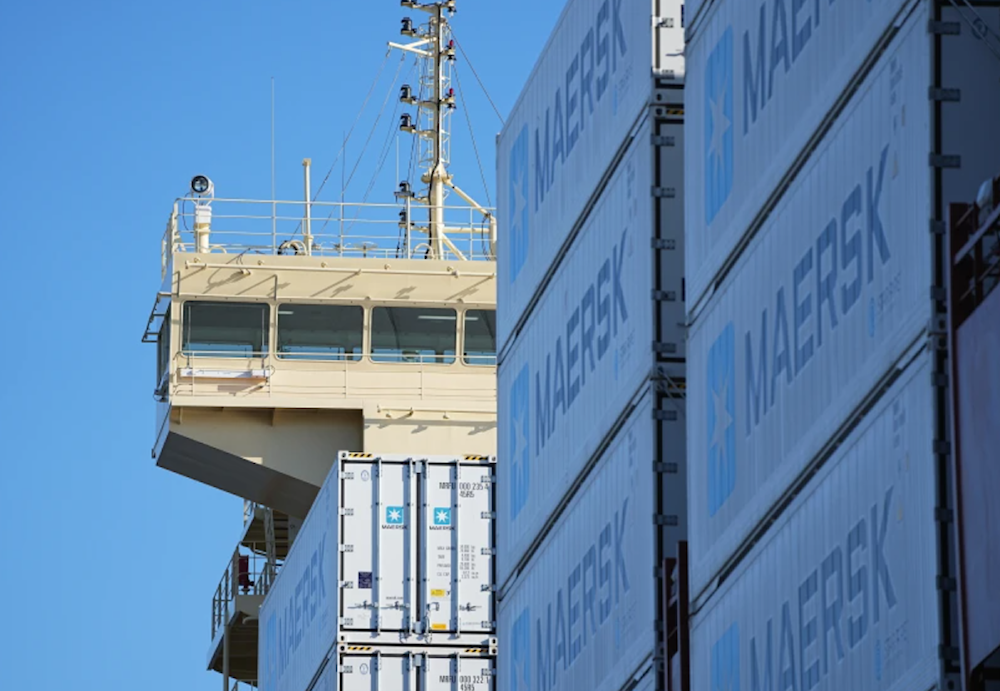Maersk divests from firms abetting Israeli settlements in West Bank
Activists have welcomed the decision as a critical first step but urged the company to go even further.
-

Containers are seen on the world's first methanol-enabled container vessel before the namegiving ceremony in Copenhagen, Denmark on September 14, 2023. (AP)
Danish shipping giant Maersk has announced it will sever business ties with companies connected to Israeli settlements in the occupied West Bank, following months of pressure from Palestinian activists and growing scrutiny over corporate complicity in potential war crimes.
The move, disclosed on Maersk’s website, comes just a month after the company voted during its annual general meeting on halting arms shipments to "Israel". The decision follows an internal review of its cargo operations in the West Bank and the enhancement of its vetting processes to ensure compliance with international law.
Maersk stated that its revised policy aligns with the UN Human Rights Office’s database of companies involved in "Israel’s" settlement enterprise, an initiative launched under UNHRC Resolution 31/36, which identifies businesses profiting from or enabling settlement activities through services, infrastructure, or investment.
More is needed
Activists have welcomed the decision as a critical first step but urged the company to go further.
“This sends a clear message to the global shipping industry: compliance with international law and basic human rights is not optional,” said Aisha Nizar of the Palestinian Youth Movement (PYM), which led the campaign against Maersk.
However, Nizar also condemned Maersk for continuing to transport military equipment used by Israeli forces, including F-35 fighter jet components. “We will continue to build pressure and mobilise people power until Maersk cuts all ties to genocide and ends the transport of weapons and weapons components to Israel.”
Campaigners have repeatedly accused Maersk of supporting "Israel’s" war economy. In 2023, Spain barred Maersk vessels carrying military cargo for "Israel" from docking at its ports. Earlier this month, PYM alleged that Maersk was still using the Dutch port of Rotterdam to transit F-35 parts to "Israel", despite a court ruling in the Netherlands banning such exports.
Maersk maintains that it has policies prohibiting weapons shipments to active conflict zones. However, it acknowledged that its US-based subsidiary, Maersk Line Limited, remains involved in transporting materials tied to the global F-35 program.

 2 Min Read
2 Min Read








